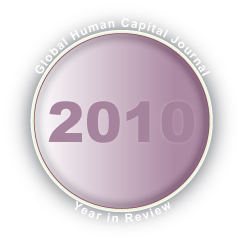 The Maple Leaf Digital Lounge has selected the Social Network Roadmap(SM) to build the social presence behind its launch, and CSRA has been working with their team for a few weeks. The Maple Leaf Digital Lounge (“MLDLCA”) is a virtual ecosystem that promotes discovery and collaboration among Canadian digital startups, foreign and Canadian investors and other enablers. Their mission is to facilitate cross-border high tech deals. “The Lounge” has two incarnations: several online venues combined with periodic physical events. Their launch event will happen on March 12 at the South by Southwest Interactive (“SxSW”) conference. Read on for my insights from working with them so far. The Maple Leaf Digital Lounge has selected the Social Network Roadmap(SM) to build the social presence behind its launch, and CSRA has been working with their team for a few weeks. The Maple Leaf Digital Lounge (“MLDLCA”) is a virtual ecosystem that promotes discovery and collaboration among Canadian digital startups, foreign and Canadian investors and other enablers. Their mission is to facilitate cross-border high tech deals. “The Lounge” has two incarnations: several online venues combined with periodic physical events. Their launch event will happen on March 12 at the South by Southwest Interactive (“SxSW”) conference. Read on for my insights from working with them so far.
Also see the case study in video and presentation formats, which illustrates the social business model, Digivents. Note, the case study uses the MLDLCA’s new name, North of 41.
[…]
 2011 Social Business Predictions and Recommendations describes current social business adoption and advices firms and people how to get ahead. 2011 Social Business Predictions and Recommendations describes current social business adoption and advices firms and people how to get ahead.
2011 will be remembered as the year “social media” fell by the wayside, strategy became a recognized prerequisite for serious efforts, and “social business” began displacing it in boardrooms’ mindshare. “Social media,” which usually tries to use social technologies to talk at people, has been the predominant “first use” of socialtech because marketing drives most social initiatives, and marketers “communicate,” i.e. push content, to their targets. When they “listen,” they use limited legacy processes such as focus groups, email marketing, data mining and online surveys. However, none of these scratch the real itch because they emphasize the company asking individuals structured questions; they don’t allow customer to customer interaction, which is ten times more illuminating because it is spontaneous and customer-centric.
Socialtech gets there, but marketers are ambivalent about it because it means a loss of control. And more profits and career growth for marketers, but they have to let go first. It’s a leap of faith, but […]
Web 3.0 and Social Business—2011 Predictions and Recommendations describes a turning point, away from social media to social business. SocialTech Grows Up—Relationship the Foundation of Business Success—Digital Clodhoppers Become Sore Thumbs.
 2011 will mark a turning point in the adoption of digital social technologies because the experimentation phase is drawing to a close, and stakeholder expectations are increasing. Organizations and people will no longer gain attention by executing badly. At the enterprise level, participation will wane in venues and initiatives that have no business strategy, focus, content strategy and commitment. Paying inexperienced people or agencies to “share” snappy content will expose brands as digital clodhoppers and push customers away. Individuals will also have to improve their game and focus on the most relevant people in their networks. Stop sending default invitations on LinkedIn. Proactively support people whom you respect and trust the most. The theme is determining and executing on strategy, focus and commitment. 2011 will mark a turning point in the adoption of digital social technologies because the experimentation phase is drawing to a close, and stakeholder expectations are increasing. Organizations and people will no longer gain attention by executing badly. At the enterprise level, participation will wane in venues and initiatives that have no business strategy, focus, content strategy and commitment. Paying inexperienced people or agencies to “share” snappy content will expose brands as digital clodhoppers and push customers away. Individuals will also have to improve their game and focus on the most relevant people in their networks. Stop sending default invitations on LinkedIn. Proactively support people whom you respect and trust the most. The theme is determining and executing on strategy, focus and commitment.
In 2011, the bar to attract and hold attention will be higher, which will present organizations with a new threat: when participation falls, some executives will conclude that […]
2010 Year In Review Initial Glimmers of Social Business is the Editor’s Choice of the Global Human Capital Journal—The Best Strategy, Tactics, Case Studies and Insights of 2010
 Compared to its progenitors 2009 and 2008, 2010 was a relatively calm year because the amplitude of market gyrations was clearly less, and businesses began to find a new floor on which to build stakeholder expectations. Although I watched with high interest the unfolding drama in Europe, I didn’t have the time to conduct the research necessary to do a rigorous interpretation. I did publish a reflection in January, which is not included in this year in review. However, 2010 marked a major turning point in the adoption of social technologies: the recognition that analysis and strategy were necessary to achieve consistent results with social initiatives. Compared to its progenitors 2009 and 2008, 2010 was a relatively calm year because the amplitude of market gyrations was clearly less, and businesses began to find a new floor on which to build stakeholder expectations. Although I watched with high interest the unfolding drama in Europe, I didn’t have the time to conduct the research necessary to do a rigorous interpretation. I did publish a reflection in January, which is not included in this year in review. However, 2010 marked a major turning point in the adoption of social technologies: the recognition that analysis and strategy were necessary to achieve consistent results with social initiatives.
2010 Macro trends
Social has been in adolescence up through 2009-2010 in which “being on Facebook” was an end in itself, agencies produced vapid content and little interaction happened because people won’t interact when brands are talking at them and not listening. People feel it when a […]
 Comparing Enterprise Social Media Consultants and Providers offers tools and processes to compare various types of social business, social media and social networking consultants. This came up this evening, when I responded to a question in one of my LinkedIn executive groups in which another member asked whether social media consulting was a “real business” for which market demand was real. I always appreciate these questions when they reflect a sincere desire to get a feeling for an emerging market space. Here is how I responded, plus additional details. Comparing Enterprise Social Media Consultants and Providers offers tools and processes to compare various types of social business, social media and social networking consultants. This came up this evening, when I responded to a question in one of my LinkedIn executive groups in which another member asked whether social media consulting was a “real business” for which market demand was real. I always appreciate these questions when they reflect a sincere desire to get a feeling for an emerging market space. Here is how I responded, plus additional details.
A Market for Social Media Services?
Depending on how one defines “social media,” it is already a multimillion dollar consulting and services industry. Most of the players have a marketing approach in which they help their clients to create content and interact with people in major platforms such as Facebook, Twitter, YouTube, LinkedIn, MySpace, blogs and specialized social networks. Most firms focus on consumer-facing (“B2C”) scenarios because the market for business to business use of social technologies significantly lags consumer uses. The three main types of social media services providers are:
[…]
 New Age of Socialized Engagement: Monte Lutz, Edelman continues the Alterian 2010 series. In this presentation, Monte gave his impression of the profound changes in marketing Edelman sees. New Age of Socialized Engagement: Monte Lutz, Edelman continues the Alterian 2010 series. In this presentation, Monte gave his impression of the profound changes in marketing Edelman sees.
Social media is about story—and trust. Citing the Trust Barometer, he asserted that trust was at an all-time low among consumers. The 18-29 age group has more trust, but they don’t consume traditional media [maybe that’s why they trust more?] Trust in experts is up and “people like me” down. Billiam the snowman had the highest trust according to one survey [don’t know what to make of that, is he an expert? ,^) ]. When people are facing uncertainty, they will accept a new idea as truth when they hear it from 3-5 sources on average. This gives people peripheral vision. […]
 At the enterprise social business engagement Engaging Times Summit, Mike gave an overview of the Alterian software stack and a preview of their new platform. The key takeaway is that Alterian is not a social media company, its core competency is deep marketing data analysis. That said, their SM2 platform is one of the social media monitoring leaders [disclosure, I’m an SM2 client]. At the enterprise social business engagement Engaging Times Summit, Mike gave an overview of the Alterian software stack and a preview of their new platform. The key takeaway is that Alterian is not a social media company, its core competency is deep marketing data analysis. That said, their SM2 platform is one of the social media monitoring leaders [disclosure, I’m an SM2 client].
[…]
 Social Business Engagement Summit Panel: Brands at Risk featured: Donna Rossi, Vice President, Global Customer Experience Management, Western Union; Rob Singer, Senior Vice President, CRM, Bank of the West; Geoff Sherman, Director Pricing, Promotions & Trade Funds, Walgreens; Kathy Hecht, CMO, American Greetings Interactive; Michael Fisher, Senior Vice President, Alterian. Social Business Engagement Summit Panel: Brands at Risk featured: Donna Rossi, Vice President, Global Customer Experience Management, Western Union; Rob Singer, Senior Vice President, CRM, Bank of the West; Geoff Sherman, Director Pricing, Promotions & Trade Funds, Walgreens; Kathy Hecht, CMO, American Greetings Interactive; Michael Fisher, Senior Vice President, Alterian.
The message of this panel was that senior marketers and brands that don’t understand and embrace the changing landscape will feel the pain. Realize that the environment is changing fast:
[…]
 Social Business Engagement Panel: The Importance of Measurement continues the Alterian 2010 series. This discussion featured: Michael Harrison, Chief Strategy Officer, Razor; Taleen Ghazarian, SVP Strategy, Epsilon; Cristene Gonzalez-Wertz, Chief Strategist, Covalent Marketing; Don Peppers, Co-Founder, Peppers & Rogers; Jennifer DeMarco Herskind, AVP Marketing, Dave & Buster’s. Social Business Engagement Panel: The Importance of Measurement continues the Alterian 2010 series. This discussion featured: Michael Harrison, Chief Strategy Officer, Razor; Taleen Ghazarian, SVP Strategy, Epsilon; Cristene Gonzalez-Wertz, Chief Strategist, Covalent Marketing; Don Peppers, Co-Founder, Peppers & Rogers; Jennifer DeMarco Herskind, AVP Marketing, Dave & Buster’s.
[…]
 Social Business Engagement Summit Keynote Disruption Theme—Don Peppers keynoted the second day of Alterian’s 2010 User Conference, Engaging Times Summit with a talk entitled, “Death by word of Mouth.” Encouraging ,^) Social Business Engagement Summit Keynote Disruption Theme—Don Peppers keynoted the second day of Alterian’s 2010 User Conference, Engaging Times Summit with a talk entitled, “Death by word of Mouth.” Encouraging ,^)
Technology and interactivity are now. 96% of Gen Y are members of social networks. They are self-oriented and have no trust in adverts. He cited the film Bruno, which people panned in social networks and Twitter on its opening day; the box office fell 40% the next day (and never recovered). Before Web 2.0, the studio could have built momentum through adverts. No more. You can’t ungoogle yourself. […]
|
|
 The Maple Leaf Digital Lounge has selected the Social Network Roadmap(SM) to build the social presence behind its launch, and CSRA has been working with their team for a few weeks. The Maple Leaf Digital Lounge (“MLDLCA”) is a virtual ecosystem that promotes discovery and collaboration among Canadian digital startups, foreign and Canadian investors and other enablers. Their mission is to facilitate cross-border high tech deals. “The Lounge” has two incarnations: several online venues combined with periodic physical events. Their launch event will happen on March 12 at the South by Southwest Interactive (“SxSW”) conference. Read on for my insights from working with them so far.
The Maple Leaf Digital Lounge has selected the Social Network Roadmap(SM) to build the social presence behind its launch, and CSRA has been working with their team for a few weeks. The Maple Leaf Digital Lounge (“MLDLCA”) is a virtual ecosystem that promotes discovery and collaboration among Canadian digital startups, foreign and Canadian investors and other enablers. Their mission is to facilitate cross-border high tech deals. “The Lounge” has two incarnations: several online venues combined with periodic physical events. Their launch event will happen on March 12 at the South by Southwest Interactive (“SxSW”) conference. Read on for my insights from working with them so far.
 2011 Social Business Predictions and Recommendations describes current social business adoption and advices firms and people how to get ahead.
2011 Social Business Predictions and Recommendations describes current social business adoption and advices firms and people how to get ahead. Compared to its progenitors 2009 and 2008, 2010 was a relatively calm year because the amplitude of market gyrations was clearly less, and businesses began to find a new floor on which to build stakeholder expectations. Although I watched with high interest the unfolding drama in Europe, I didn’t have the time to conduct the research necessary to do a rigorous interpretation. I did publish a reflection in January, which is not included in this year in review. However, 2010 marked a major turning point in the adoption of social technologies: the recognition that analysis and strategy were necessary to achieve consistent results with social initiatives.
Compared to its progenitors 2009 and 2008, 2010 was a relatively calm year because the amplitude of market gyrations was clearly less, and businesses began to find a new floor on which to build stakeholder expectations. Although I watched with high interest the unfolding drama in Europe, I didn’t have the time to conduct the research necessary to do a rigorous interpretation. I did publish a reflection in January, which is not included in this year in review. However, 2010 marked a major turning point in the adoption of social technologies: the recognition that analysis and strategy were necessary to achieve consistent results with social initiatives. Comparing Enterprise Social Media Consultants and Providers offers tools and processes to compare various types of social business, social media and social networking consultants. This came up this evening, when I responded to a question in one of my LinkedIn executive groups in which another member asked whether social media consulting was a “real business” for which market demand was real. I always appreciate these questions when they reflect a sincere desire to get a feeling for an emerging market space. Here is how I responded, plus additional details.
Comparing Enterprise Social Media Consultants and Providers offers tools and processes to compare various types of social business, social media and social networking consultants. This came up this evening, when I responded to a question in one of my LinkedIn executive groups in which another member asked whether social media consulting was a “real business” for which market demand was real. I always appreciate these questions when they reflect a sincere desire to get a feeling for an emerging market space. Here is how I responded, plus additional details. New Age of Socialized Engagement: Monte Lutz, Edelman continues the Alterian 2010 series. In this presentation, Monte gave his impression of the profound changes in marketing Edelman sees.
New Age of Socialized Engagement: Monte Lutz, Edelman continues the Alterian 2010 series. In this presentation, Monte gave his impression of the profound changes in marketing Edelman sees. Social Business Engagement Summit Panel: Brands at Risk featured: Donna Rossi, Vice President, Global Customer Experience Management, Western Union; Rob Singer, Senior Vice President, CRM, Bank of the West; Geoff Sherman, Director Pricing, Promotions & Trade Funds, Walgreens; Kathy Hecht, CMO, American Greetings Interactive; Michael Fisher, Senior Vice President, Alterian.
Social Business Engagement Summit Panel: Brands at Risk featured: Donna Rossi, Vice President, Global Customer Experience Management, Western Union; Rob Singer, Senior Vice President, CRM, Bank of the West; Geoff Sherman, Director Pricing, Promotions & Trade Funds, Walgreens; Kathy Hecht, CMO, American Greetings Interactive; Michael Fisher, Senior Vice President, Alterian. Social Business Engagement Panel: The Importance of Measurement continues the Alterian 2010 series. This discussion featured: Michael Harrison, Chief Strategy Officer, Razor; Taleen Ghazarian, SVP Strategy, Epsilon; Cristene Gonzalez-Wertz, Chief Strategist, Covalent Marketing; Don Peppers, Co-Founder, Peppers & Rogers; Jennifer DeMarco Herskind, AVP Marketing, Dave & Buster’s.
Social Business Engagement Panel: The Importance of Measurement continues the Alterian 2010 series. This discussion featured: Michael Harrison, Chief Strategy Officer, Razor; Taleen Ghazarian, SVP Strategy, Epsilon; Cristene Gonzalez-Wertz, Chief Strategist, Covalent Marketing; Don Peppers, Co-Founder, Peppers & Rogers; Jennifer DeMarco Herskind, AVP Marketing, Dave & Buster’s. Social Business Engagement Summit Keynote Disruption Theme—Don Peppers keynoted the second day of Alterian’s 2010 User Conference, Engaging Times Summit with a talk entitled, “Death by word of Mouth.” Encouraging ,^)
Social Business Engagement Summit Keynote Disruption Theme—Don Peppers keynoted the second day of Alterian’s 2010 User Conference, Engaging Times Summit with a talk entitled, “Death by word of Mouth.” Encouraging ,^)